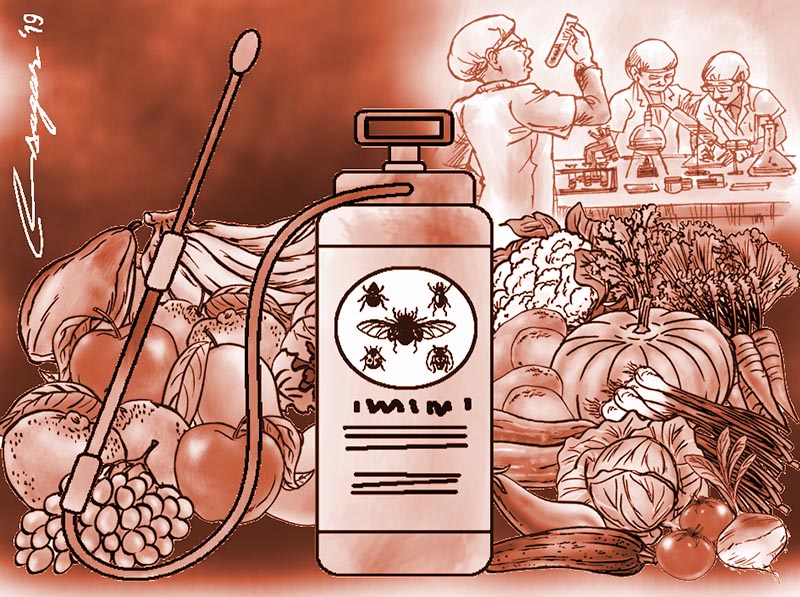Vegetable imports: To regulate or not to regulate?
Indeed, governments do have rights to tweak trade policies in their favour, and almost all countries do this. But they provide scientific justification for their action—laboratory results, proof of poor quality or quantitative evidence of foreign products hurting domestic markets
The government’s decision to make pesticide residue test mandatory for the import of vegetables and fruits, and the subsequent decision to suspend this notice within a span of mere 18 days, have caused much stir. The general crux of the arguments posited in the media is that pesticide residues are pernicious, and hence the government has jeopardised the health of its citizens by recanting its own policy. This argument is stretched further by emphasising that India routinely uses non-tariff measures to discourage Nepal’s exports, and hence we should not have any qualms about giving them some taste of their own medicine.
While it is certainly the government’s responsibility to ensure the safety of foods its citizens consume, the way in which the government set out to achieve this objective reveals major lapses in planning, troubling lack of foresight, disquietingly poor coordination among government agencies, and a blatant disregard for international laws and agreements.
It is worth mentioning that there are ambiguities on whether the trade policy change was introduced to reduce the trade deficit or to protect our health. The fact that the policy change came right after the government introduced the ‘National Action Plan to Reduce Trade Deficit’ lends credence to the former hypothesis.
Even if we give the benefit of doubt to the government and believe that the policy was introduced with a genuine interest to protect people’s health, the implementation was always going to be challenging given the poor quality infrastructure of Nepal—hard and soft. Nepal is pitiably ill-equipped when it comes to testing facilities, both in terms of laboratories and skilled human resources required to operate them. More specifically, there is no such testing laboratory at the border points at all, and the existing plant quarantines are there for preventing the entry of harmful pests into the territory of Nepal.
Another issue with the decree requiring mandatory testing of pesticide residues is the lack of clarity on what pesticide residues are to be tested. This is especially problematic since Nepal does not yet have mandatory standards regarding pesticide residues for vegetables and fruits.
Notwithstanding the problems in enforcing decrees of such nature, we observe that there is significant support for mandatory testing as retaliation to India’s treatment to our exports. Arguments maintain that if India imposes similar non-tariff measures by holding shipments at the borders until the samples are tested in the laboratories, Nepal should not step back from doing so. However, one has to understand that these are instances of arbitrary trade practices by Indian customs, rather than official trade policies promulgated by the government. These non-tariff barriers should be solved through negotiations rather than blatant retaliations through the official trade policy. Another way to solve this would be through a mutual recognition agreement (MRA) where the governments recognise each other’s capacity to conduct testing and certification competently and hence doing away with another test at the border. However, that would require a major upgradation of laboratories as well as the required human resources on Nepal’s part.
In addition to the issues discussed above, the policy gravely contravenes the principles of the World Trade Organisation (WTO). First of all, Nepal has yet to fix standards on permissible pest residue limit, also known as Maximum Residue Level (MRL), for food items—whether they are produced domestically or imported. Thus, in the absence of national standards or the adoption of international standards, the government’s decision seems to be ad hoc rather than based on sound science.
Furthermore, the WTO Agreement on Sanitary and Phytosanitary Measures - the SPS Agreement - requires that the measures do not discriminate between domestic producers and foreign producers. However, having no mandatory standards for Nepali producers but requiring mandatory testing for foreign producers does just that.
Indeed, governments do have rights to tweak trade policies in their favour, and almost all countries do this. But they provide scientific justification for their action—laboratory results, proof of poor quality or quantitative evidence of foreign products hurting domestic markets.
The government must put a system in place, either through upgradation of laboratories, or through some kind of certification requirement, or through risk-based sampling, which would prevent the entry of dangerous products without making the process trade impeding. Since infrastructure upgradation takes time, the best way to move forward would be to carry out a detailed investigation to identify the most prevalent pesticide residues in the fruits and vegetables that we consume. We could then formulate mandatory national standards with that knowledge.
After this fix, the ultimate goal must be building strong national quality infrastructure. This will ameliorate our current levels of trade deficit by bolstering our exports while enabling us to protect our people’s health. This will enable us to conduct MRAs with our important trading partners so that our exports are not subjected to the costly non-tariff barriers.


